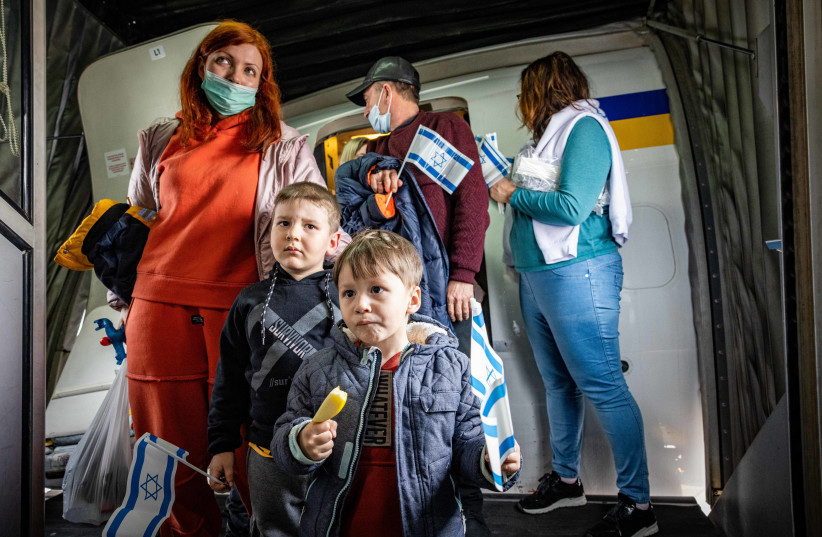Israelis are being asked to volunteer to host Ukrainian refugees at their Passover Seder in a new public campaign being organized by Rabbi Shai Piron, former Yesh Atid MK and Prof. Yedidia Stern, president of the Jewish People Policy Institute.
“We know the citizens of Israel are eager to help, and this is an opportunity for them to do it,” Aliyah and Integration Minister Pnina Tamano-Shata (Blue and White) said on Tuesday, at a meeting of the new Knesset subcommittee on immigration.
Nearly 5,000 immigrants have already come from Ukraine, including many who came as tourists and will change their status afterward, she told the subcommittee, which will oversee her ministry’s absorption of refugees. They will all be given permanent housing, but in the meantime, she said her ministry had 12,000 beds in hotel rooms for them that they can keep for a month, even if it includes Passover.
Every family received NIS 3,000 when they arrived as immigrants and an additional NIS 6,000 as refugees. They also receive an NIS 4,000 monthly stipend.
Refugees eligible to enter Israel according to the Law of Return will receive immediate health insurance even before their status is clear, Meir Spiegler, project manager for Ukrainian refugees, told the committee. Two hospitals have offered free medical care for Ukrainian refugees.

As many Ukrainian immigrants have come to Israel over the past two weeks as had come over the past two years, said Yamina MK Yomtob Kalfon, chairman of the subcommittee.
Jewish Agency Secretary-General Josh Schwarcz called this a historic moment, and that government ministries, the Jewish Agency, Nativ, the International Fellowship of Christians and Jews, and other organizations were cooperating well. He said he expected 30,000-50,000 immigrants to come to Israel from Ukraine, Russia and Belarus, two to three times the 15,000 who normally come annually.
The agency has 70 workers in Ukraine and 30 in border countries to help bring some 2,000 immigrants a week, Schwarcz said.
Yad L’Olim founder Dov Lipman spoke about the need to help Jewish women with a non-Jewish husband who did not start their aliyah process, because it could prevent their husband from making aliyah. He also brought up the issue of immigrants who were in the process of converting in Ukraine.
But the efforts to help refugees also faced criticism. Religious Zionist Party MK Simcha Rothman said there was a misleading campaign of disinformation aimed at pressuring Israel to take in more non-Jews.
“Being Jewish does not make them less of a refugee or in less danger,” he said.
Yamina Director-General Stella Weinstein left the room in anger, complaining that Israel and Jewish organizations were not doing enough to help refugees.
“People are dying, and you say there will be another meeting?” she said before leaving the room.
